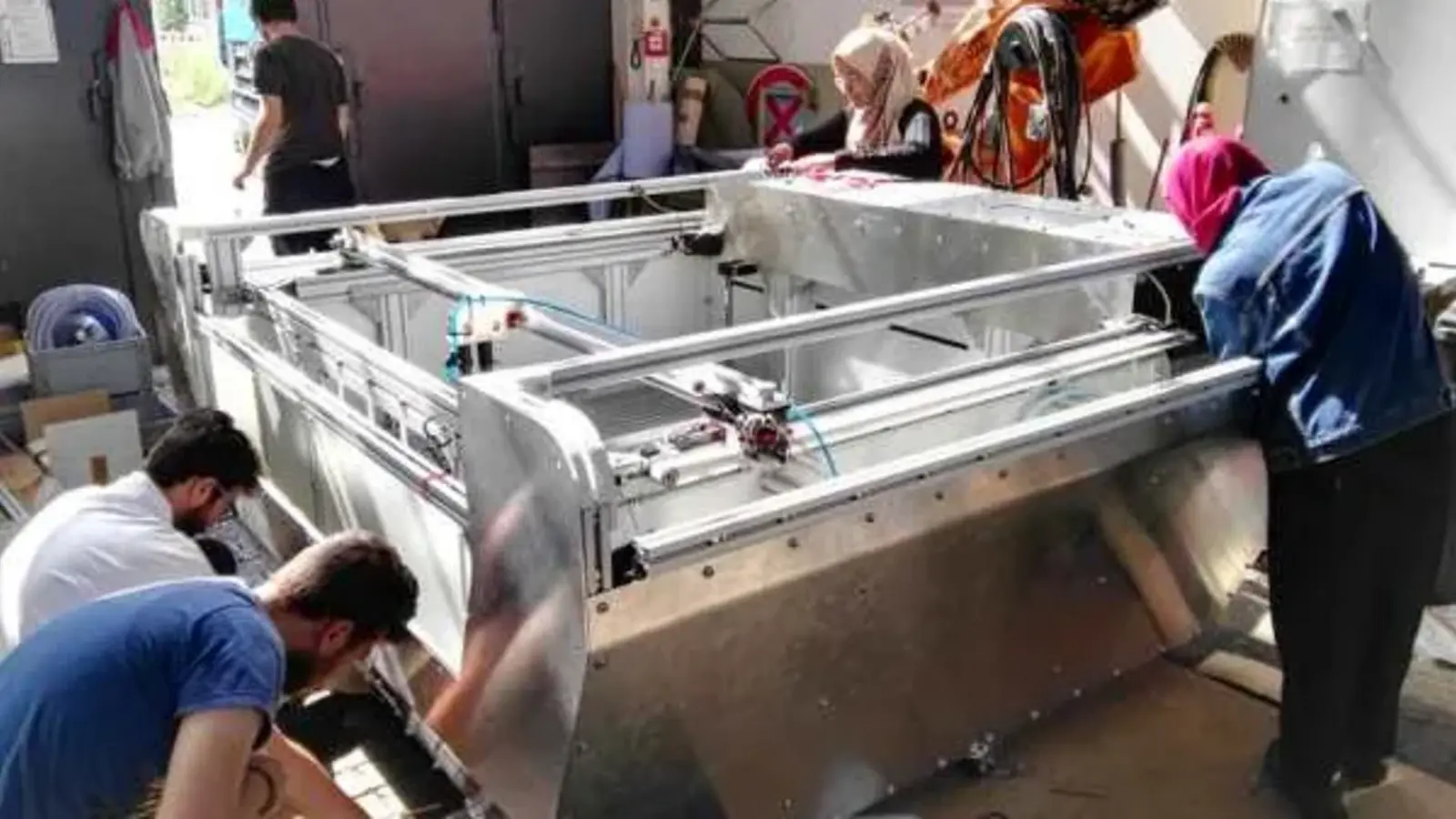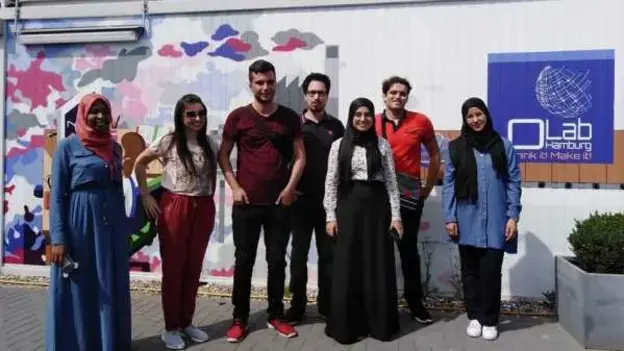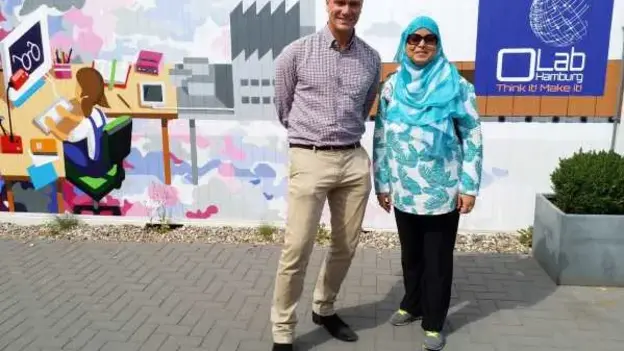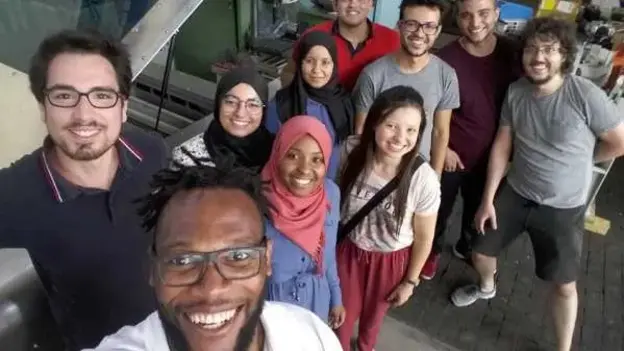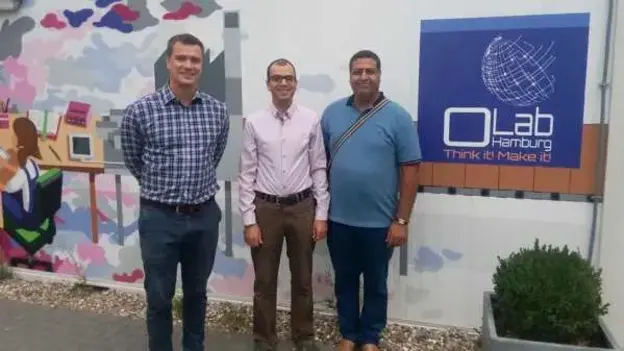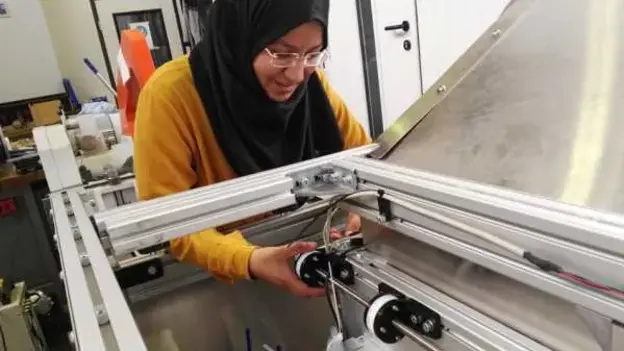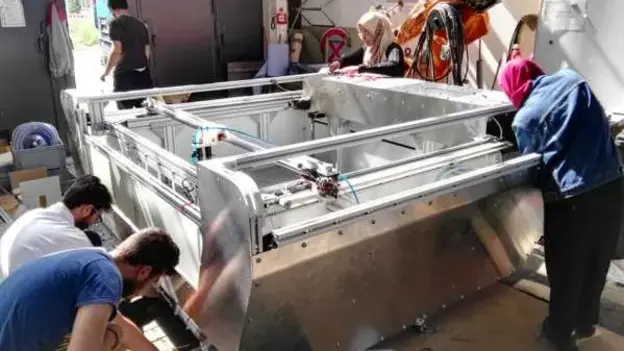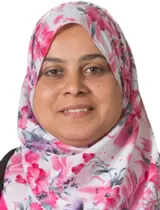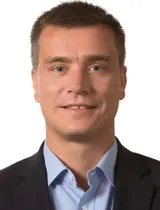Tandem Project
Tunisian Students Replicate Open Source Hardware
Short for ‘fabrication laboratories’, FabLabs are open manufacturing spaces where anyone can access robust and easy-to-handle production machines like 3D printers, CNC machines and laser cutters. They are also places for ‘makers’ to exchange knowledge and experiment. One such FabLab is ‘OpenLab Hamburg’ at Germany’s Helmut Schmidt University (HSU), led by AGYA member Tobias Redlich. In a month-long AGYA workshop in cooperation with HSU, eight highly motivated students from the National Engineering School of Tunis (ENIT) built an open source dual laser cutter called ‘LaserDuo’. The LaserDuo integrates two different laser sources, designed to cut and engrave a wide range of materials such as steel, wood, cloth or marble for digital fabrication projects. In line with the open source concept, all of the information needed to fix or reproduce the machine is freely available to the public. Coached by the LaserDuo’s developer, Daniele Ingrassia, the students successfully built their own fully-functional machine from scratch in just one month.
The workshop was organized by AGYA members Tobias Redlich, the Chief Engineer of HSU’s Laboratory for Manufacturing Technology (LaFT), and Henda Mahmoudi, Biotechnologist at the International Center for Biosaline Agriculture in Dubai (United Arab Emirates), in cooperation with Helmi Ben Rejeb from FabLab ENIT. It marked the second major German-Tunisian collaboration between AGYA and ENIT within the framework of the AGYA project ‘Twinning for Innovation’, which explores the groundbreaking potential of FabLabs and the open source movement to foster and empower grassroots innovation and value creation through international cooperation and knowledge exchange. ‘AGYA invites us to think outside of the box and actively supports projects that transcend social and scientific boundaries’, explains AGYA member Henda Mahmoudi regarding her motivation for joining the project.
‘Within AGYA, we can realize our own research ideas and get funding for it’, explains Redlich, citing one of the benefits of being an AGYA member.
‘As the projects are interdisciplinary and always involve both an Arab and a German partner, the academy encouraged me to look beyond my own discipline and supported me in broadening my professional network in the Arab world – something I would not have done without AGYA. For this workshop, Tunisian AGYA members Henda Mahmoudi and Anis Ben Amor helped me set up the contacts in Tunisia. It’s just fantastic!’
Interactive Learning and Knowledge Exchange in an Intercultural Environment
For the Tunisian students, the workshop offered an excellent opportunity for deep, interactive learning in an intercultural environment. Over the course of the month, they not only learned new theoretical concepts and technical skills related to digital fabrication, but also had the chance to apply their new knowledge in a complex project from start to finish. One student noted, ‘This is the first time that we have lectures combined with a workshop and actually get to build such a complex machine’. While FabLab ENIT already provides the students with an important outlet in which to apply their studies in practical, self-driven projects, the AGYA workshop gave them experience on machines they currently lack in their own lab, and the knowledge and skills to execute complex open source hardware projects themselves.
The workshop also pushed the students, from different fields of studies including electrical engineering, mechanical engineering and computer science, to learn beyond their disciplinary specializations. ‘I study computer science’, one student reflected, ‘so I didn't understand a lot about building this kind of machine beforehand. In this workshop, I gained a lot of practical knowledge, especially related to electronics and CNC machines that will be very useful in the future: on a personal level, because I want to do embedded programming, but also collectively, as we will use our new knowledge to expand the overall capability of our FabLab in ENIT. We’ll teach new members the skills we learned’.
More than the completed laser cutter, knowledge exchange and the potential to advance the growing FabLab and open source movement in Tunisia and the region was the most valuable takeaway for many of the workshop participants. As one student explained, ‘In this hands-on workshop we learned how to build this laser cutter and when we return back to Tunis, we can share the knowledge of how it is built and how it works with the FabLab community in Tunisia and in other Arab countries’.
‘While many people develop open source machines’, noted LaserDuo developer Ingrassia, ‘they are not building them with a set of students. This AGYA project is the first example of this model worldwide. We are going a step further and empowering the students to teach others to build this machine. They can teach all of Tunisia how to make the LaserDuo and, with that, make many other different kinds of machines. Thus, we are unlocking the full potential of open-source hardware as a model for innovation’.
Open Source Hardware Fundamentally Changes Manufacturing and Value Creation in Our Societies
‘I feel that we’re at the forefront of a movement that is really exciting’, explains AGYA member Tobias Redlich. Though some engineers may not consider the students’ feat cutting-edge for the field, given that more sophisticated technology exists on the market, Redlich insists that ‘the real value is the technology combined with the social impact and how manufacturing takes place in FabLabs. With decentralized production that can be controlled and customized locally, open source hardware changes the whole way of manufacturing and value creation in our societies and no one is talking about this in science’.
For Redlich, ‘it’s the interdisciplinary research questions we ask that are interesting. How do new digital fabrication technologies, the concept of open source, communities of practice like the “maker community” and FabLabs, the internet, and international cooperation all work together and maybe form a new way of economy?’ In his opinion, no single discipline can answer such a broad question: ‘It’s not just an engineering question or a social science question. It involves many different disciplines and perspectives, which is both an immense challenge and opportunity’. Redlich emphasizes that ‘AGYA has been the ideal platform for incubating this kind of exciting, open-ended research across disciplines. It provided the initial power and energy needed to get the project started and now it’s going strong, with concrete results! AGYA really helps raise the profile and legitimacy of cooperative, interdisciplinary research. It’s amazing what we’ve been able to accomplish!’
- Venue
- OpenLab, Helmut Schmidt University (HSU), Hamburg, Germany
- Project Title
- Tunisian Students Replicate Open Source Hardware in a Month-Long Workshop in Germany
- Year
- 2018
- Funding Scheme
- Tandem Project
- Countries Involved
- Tunisia, Germany
- AGYA Publication
- Higher Education in Tunisia: Challenges and Opportunities
What are OpenLabs?
AGYA member Tobias Redlich, Chief Engineer of the Laboratory for Manufacturing Technology (LaFT) at the Helmut Schmidt University in Hamburg, explains the idea of OpenLabs.
